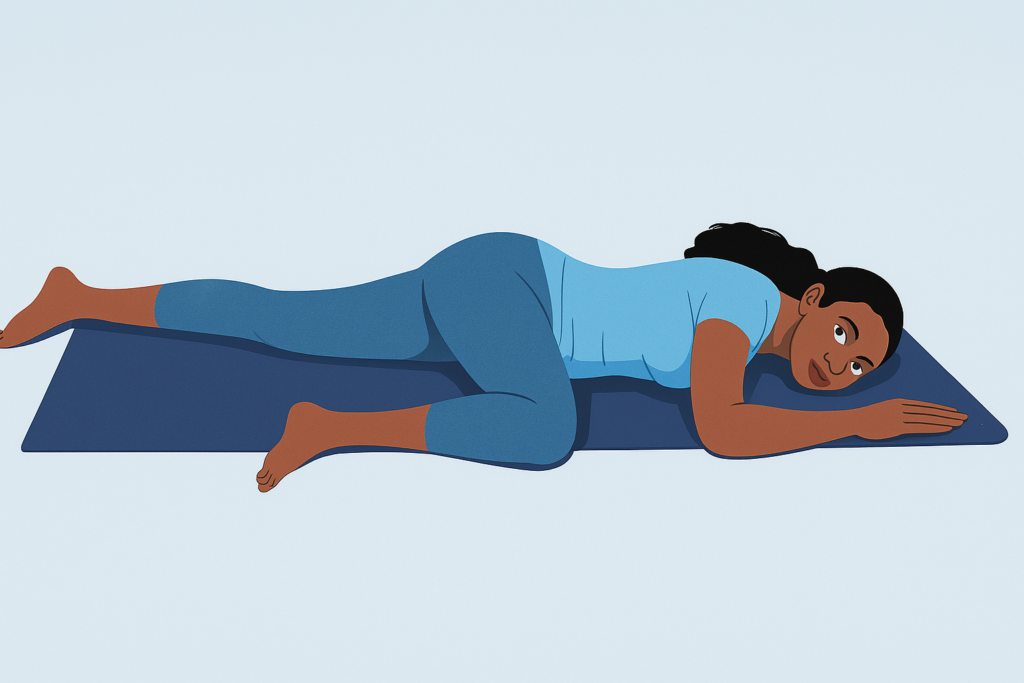Sanskrit Name: मकरासन
English Name: Crocodile Pose
Description:
Makarasana, derived from the Sanskrit term “Makara” (मकर) meaning “crocodile” and “Asana” (आसन) which translates to “pose” or “seat,” is known as “Crocodile Pose.” This pose resembles a crocodile lying on the ground. It serves as a calming and restorative posture, aimed at soothing both the body and mind. Unlike more vigorous yoga poses, Makrasana emphasizes relaxation over effort and is often practiced after more demanding poses to help the body unwind, alleviate tension, and foster a sense of peace. Although it may not have the ancient significance of poses like Padmasana or Trikonasana, Makrasana is valued in contemporary yoga for its energy-restoring and tranquil qualities.
Benefits:
- Stress Relief: Makarasana helps calm the mind and reduce stress levels, promoting relaxation and mental clarity.
- Improved Digestion: The pose stimulates abdominal organs, aiding in digestion and relieving constipation.
- Back Pain Relief: It stretches the spine and alleviates tension in the lower back, providing relief for those with back pain.
- Respiratory Benefits: The position encourages deep breathing, enhancing lung capacity and respiratory function.
- Posture Correction: Regular practice can help improve posture by strengthening the back and shoulder muscles.
- Enhanced Flexibility: It increases flexibility in the hips and lower back, making it beneficial for overall mobility.
Medical Conditions(Relief):
Overall, Makarasana is a gentle yet effective pose that supports both physical and mental well-being.
Makarasana, also known as Crocodile Pose, is beneficial for several medical conditions. It aids in relieving stress and anxiety, promoting relaxation. This asana can also help alleviate back pain by stretching the spine and improving posture. Additionally, it supports respiratory health by enhancing lung capacity and encouraging deep breathing. Furthermore, Makarasana may aid in digestion and help reduce fatigue, making it a versatile pose for overall well-being.
Medical Conditions(Avoid):
- Pregnancy: Pregnant individuals should avoid this pose as it may put pressure on the abdomen and affect the fetus.
- Recent Surgery: Those who have undergone abdominal or back surgery should refrain from practicing Makarasana until fully healed.
- Severe Back Pain: Individuals with acute back pain or serious back injuries should avoid this pose, as it can exacerbate discomfort.
- Neck Issues: Those with neck injuries or chronic neck pain should be cautious, as the position may strain the neck.
- Respiratory Conditions: Individuals with severe asthma or other respiratory issues might find it difficult to breathe comfortably in this position.
- Carpal Tunnel Syndrome: Those suffering from this condition may experience increased discomfort in the wrists during the pose.

